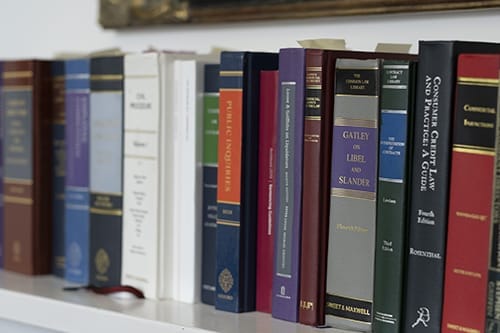Further to our recent blog discussing Ofcom’s failure to hold the media to account, we now turn our attention to IPSO, the self-proclaimed toughest regulator in the developed world. Our question – is IPSO a genuine regulator, or simply a complaints handler?
The Trouble with IPSO – A genuine regulator, or simply a complaints handler?
After all, the primary role of a press regulator is to give people a means of redress when they’ve been wronged by the press. And yet to date, IPSO has failed to conduct any meaningful investigations or reward damages to a claimant. So, what exactly are they doing?
A bit of background
IPSO was set up in 2014, to better hold journalism to account than its predecessor, the Press Complaint Commission. IPSO was founded in response to the Leveson inquiry – the judicial public inquiry into the culture, practices, and ethics of the British press following the News International phone hacking scandal.
IPSO’s remit covers 90% of national newspapers (by circulation) and the vast majority of regional newspapers and magazines.
Sounds good, right?
Not so! In fact, IPSO was rejected by Sir Brian Leveson as ineffective. IPSO satisfies just 12 of the 38 Leveson recommendations for an independent self-regulatory system, and furthermore utterly fails to satisfy 20. Why?
The issues stem from the fact that IPSO was essentially set up by the industry itself. A University of Westminster research report published in 2021 found IPSO is deliberately constrained by the newspaper industry from acting as an effective independent regulator that can uphold professional standards and command public respect.
IPSO’s shortcomings
As a regulator, IPSO serves a trifold purpose:
- To help members of the public who need support.
- To uphold the highest professional standards in the UK press.
- To determine whether standards have been breached, and provide redress if so.
Let’s look at each in turn:
- Supporting members of the public: IPSO essentially has two primary functions to support those who need assistance – Public Notices and Complaints Process.
- Upholding highest professional standards: IPSO provides this by way of guidance notes and its Editors Code; however, its stated aim is to advise, not to prescribe, define, or limit choices made by journalists and editors.
- Determining if standards have been breached and provide redress: This refers to IPSO’s complaint monitoring process which aims to highlight breaches of the Editor’s Code triggering investigation.
According to its latest annual report, in 2021 IPSO received 14,355 complaints – leading to 461 investigations. 205 of these were resolved between the publisher and complainant, 25 were resolved with IPSO mediation, and 88 complaints were upheld.
Good on paper, but what does this actually look like in practice?
- Investigation: Research concluded that IPSO sets an intentionally high bar by which an investigation may be proactively launched, thus weakening a core regulatory function. Even in very high-profile cases IPSO lacks the ability to intervene.
- Monitoring: It was concluded that IPSO is structurally unable to fulfil a comprehensive monitoring role. Shortcomings in its complaints handling function demonstrate the system’s inability to effectively monitor the industry it is supposed to hold to account.
- Transparency: IPSO does not record breaches or the adequacy and effectiveness of its members compliance procedures. As such it does not fully satisfy its own commitments to transparency, and therefore does not satisfy the definition of a regulator.
- Redress: It was found that IPSO’s inability to deploy a credible enforcement function essentially reduces its regulatory powers to that of a complaint handling body. Only ‘serious and systemic’ breaches can attract financial sanctions, but nowhere in its governance documents are the definitions of ‘serious’ and ‘systemic’ specified, nor is it clear what would need to happen for such a breach of code to be recorded.
It appears therefore that much like Ofcom, IPSO’s approach is reactive rather than proactive, an opinion supported by the independent Press Recognition Panel. Its sixth Annual State of Recognition Report, published in 2022 was likewise highly critical of IPSO.
The Panel found that “IPSO is not a regulator, and it manifestly does not meet the Royal Charter criteria.It is not independent of the industry. It does not provide the public with the necessary levels of protection intended following the Leveson Inquiry”.
If left unchecked this continued lack of effective regulation will have potentially serious implications, not just for the public but for the future of journalism. According to the most recent Edelman Trust Barometer, the UK remains one of the countries with the lowest faith in media, with only 37% percent of people trusting the media.
IPSO could help put that right if it addresses its own systemic failings. Do you think it will?







